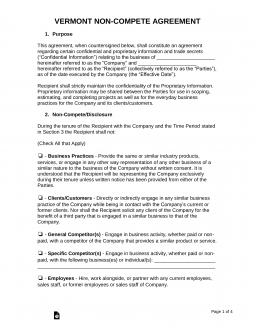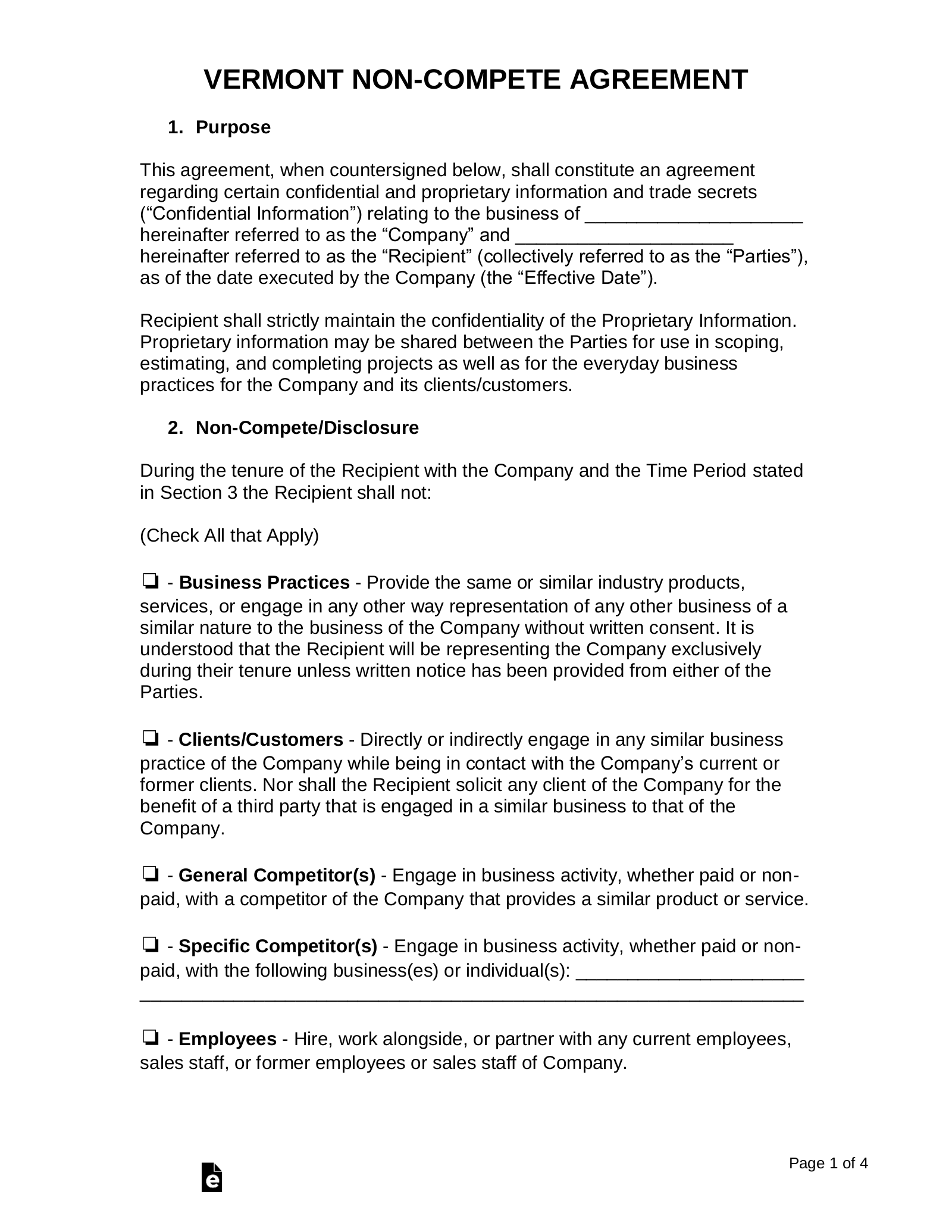Updated February 28, 2024
A Vermont non-compete agreement is made between an employer and an employee that agrees to withhold performing the same services for a specific time period after termination. The parties must agree to the prohibited business activities and the geographical areas.
Laws
Legally Enforceable?
Yes, a non-compete is enforceable if the restraint is NOT greater than is needed to protect the business’s legitimate interest; or the employer’s need is not outweighed by the hardship to the employee or the likely injury to the public.
“A court will enforce a restrictive covenant in an employment agreement to the extent that enforcement is reasonably tailored to protect a legitimate interest of the employer.”[1]
Source: Systems and Software, Inc. v. Barnes (2005)
Furthermore,
“Unless the [non-compete] agreement is found to be contrary to public policy, unnecessary for [the] protection of the employer, or unnecessarily restrictive of the rights of the employee, with due regard being given to the subject matter of the contract and the circumstances and conditions under which it is to be performed.”[2]
Source: Roy’s Orthopedic, Inc. v. Lavigne (1982)
Attorneys (prohibited)
An attorney is prohibited from entering into any agreement that restricts their right to practice law.[3]
Source: Rule 5.6 (Restrictions on Right to Practice)
What is “Reasonable”?
The court has established that a non-compete must be “reasonably tailored to protect a legitimate interest of the employer,” and reasonableness “will vary by industry and will depend highly on the nature of the interest justifying the restrictive covenant.”[1]
Source: Systems and Software, Inc. v. Barnes (2005)
Continued Employment
An employer can use continued employment to be sufficient consideration.
A noncompetition agreement presented to an employee at any time during the employment relationship is ancillary to that relationship and thus requires no additional consideration other than continued employment.[4]
Source: Summits 7, Inc. v, Kelly (2005)
Maximum Term
- Employment: 5 years has been deemed reasonable that was for a specific county.[5]
- Sale of a Business: 3 years has been deemed reasonable.[6]
Blue Penciling
Vermont does not amend, reform, or “blue pencil” a non-compete if it includes an “unreasonable restraint.”[2]


